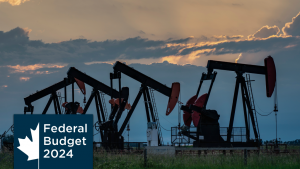B.C. lawmakers are heading back to the legislature for a rare summer session where they will debate a liquefied natural gas (LNG) project agreement that protects proponents from changes to rules and taxes for 25 years.
The agreement for the $36 billion Pacific NorthWest LNG project is one of two final conditions the consortium has made before making a final investment decision.
The other is environmental approval from the federal government. A decision on that is expected later this year.
If the project receives the green light to proceed, it would be the largest capital investment in the province’s history.
"The company has met its commitment to ratify the agreement we signed, which establishes the path to a final investment decision on the project," said Finance Minister and government house leader Michael de Jong.
The province has released the full 140-page project agreement signed by the B.C. government and Pacific NorthWest LNG, earlier this month.
The province stated it will continue to work with First Nations and the proponent to achieve the highest environmental standards.
This includes protection and enhancement of the fish habitat.
Pacific NorthWest LNG plans to build the LNG facility in the District of Port Edward, on land administered by the Prince Rupert Port Authority.
The first phase of the project would consist of two liquefaction trains, two LNG storage tanks, marine infrastructure with two berths for LNG carriers, a material offloading facility, as well as administration and auxiliary buildings.
The facility would liquefy and export natural gas produced by Progress Energy Canada Ltd. in Northeast B.C. for transport to Lelu Island by the Prince Rupert Gas Transmission project. The project agreement requires the province to compensate the proponent and partners under certain circumstances against adverse changes to the LNG Income Tax, the Natural Gas Tax Credit or the Carbon Tax.
It does not provide the proponent with assurance on laws of general application, such as changes to provincial sales tax or corporate income tax.
The project received an environmental certificate from the provincial government in November 2014.
The certificate includes eight conditions, which Pacific NorthWest LNG has committed to fulfilling.
The Canadian Environmental Assessment Agency is currently reviewing the project’s environmental assessment application and is expected to make a decision later this year.
Construction is estimated to take about four years, with commercial operations targeted to begin in 2019.
The agreement faces opposition from B.C.’s NDP, which believes Premier Christy Clark has sold out the province to put LNG first.
"The Premier has utterly failed to get an agreement that benefits British Columbia," said Spencer Chandra Herbert, MLA for Vancouver-West End.
"This deal shows she’s willing to sell out our environment, and to ignore our urgent need to drive down climate change emissions now and in the years ahead. It’s clear Petronas calls the tune and this government jumps, leaving our land, air, water, and climate to suffer."
According to a release by the NDP, the agreement puts the province in a corner for 25 years, forcing future governments to pay LNG proponents for environmental improvements.
The project also faces criticism from First Nations groups.
In May, the Lax Kw’alaams Band voted down a $1 billion deal with Pacific NorthWest LNG to build a terminal and pipeline in Prince Rupert.
Also, the Gitga’at First Nation announced this month it plans to begin a judicial review of the project, asserting that it was not included in the provincial environmental assessment process.











Recent Comments
comments for this post are closed